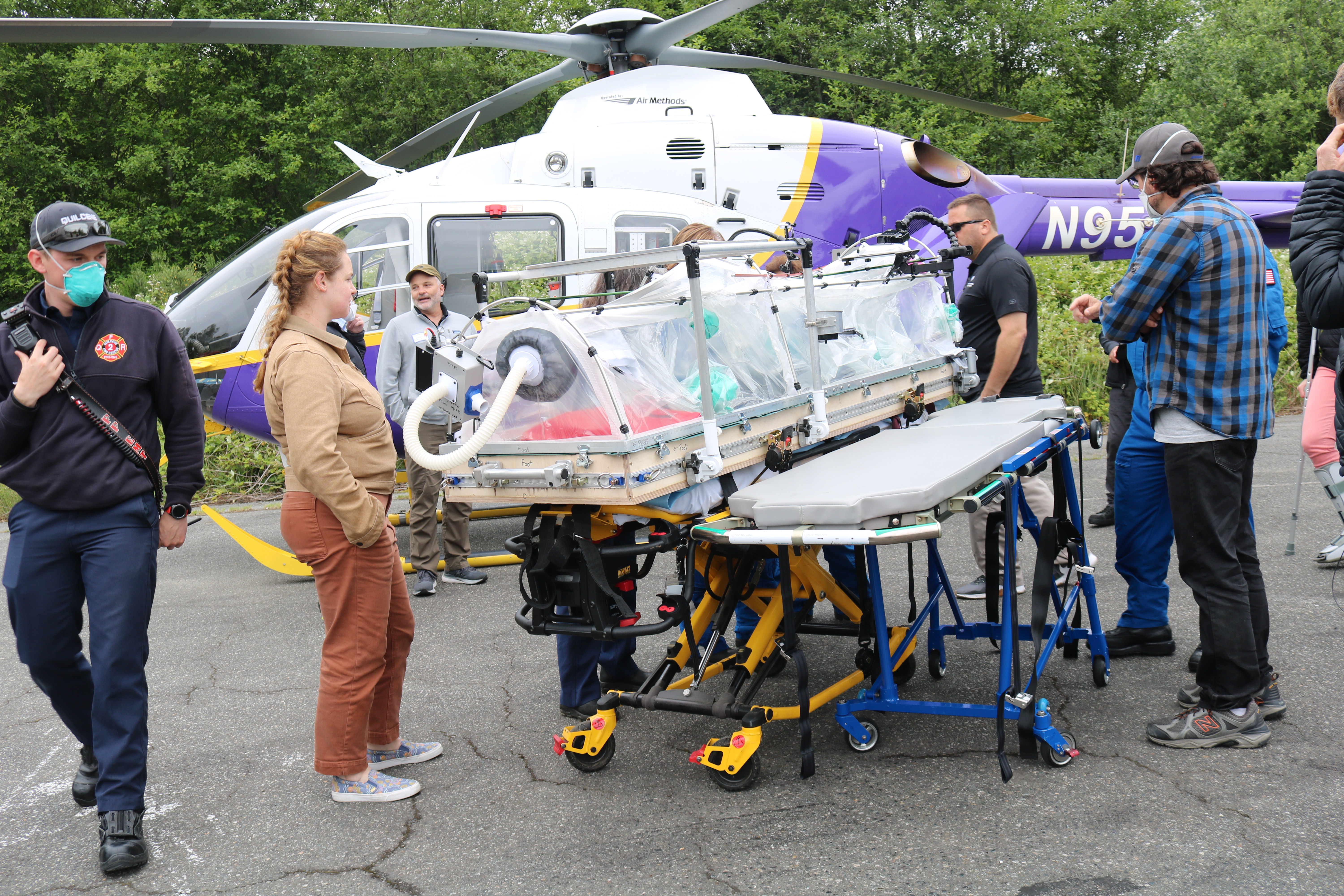
Programs
We use our expertise to fight Highly Hazardous Communicable Diseases, and creating a network to prepare for and respond to high-consequence infections.
This efforts includes a clinical trials network and rapid exchange of information during international pandemics, as well as improving the treatment and survival of sepsis in Africa and Asia. Whether through on-the-ground training or collaborations on life-saving research, the Global Center for Health Security's research programs are making a difference – for right now and for future generations.
Our programs include collaborations with other academic health centers, the federal government, and projects around the world, to include grants, networks and collaborators, external partners. In addition, internal programs and projects funded and/or led by GCHS leadership, scholars, and affiliates. Explore the sections below to learn more about our program partners.

Explore Programs
Core Capabilities
The GCHS has four core capabilities under its umbrella. We work with the Emerging Pathogens Lab , Nebraska Biocontainment Unit , the National Quarantine Unit, and deployable teams. Each of these units plays a critical role in public health preparedness and response, ensuring we are equipped to handle emerging infectious diseases and protect our communities. Together, we strive to promote safety and health on a national and global scale!
Learn MoreCore Programs
The GCHS works with multiple core programs including Region VII Disaster Health Response Ecosystem (R7DHRE), Strengthening Healthcare Infection Prevention and Control (SHIPC), D-SAFE Public Health Training Service, the National Disaster Medical System Pilot Program (NDMS), the GCHS Ethics Advisory Committee, the Training, Simulation, and Quarantine Center (TSQC), the Center for Sustainment of Trauma and Readiness Skills (C-STARS), the Region VII Emerging Pathogen Treatment Center (RESPTC), and the National Emerging Special Pathogens Training and Education Center (NETEC). Some of these innovative programs are funded by key organizations such as the Centers for Disease Control and Prevention (CDC), Administration for Strategic Preparedness and Response (ASPR), and Uniformed Services University (USU). Together, we are enhancing our capabilities to respond effectively to public health challenges.
Learn MorePartnerships
The GCHS partners with many outside organizations that include the Special Pathogens Research Network (SPRN), the Global Infectious Disease Preparedness Network (GIDPN), the Austere Environment Consortium for Enhanced Sepsis Outcomes (ASECO), the Nebraska Drug Discovery & Development Pipeline, the Bioinformatic Research Education Pipeline, the Center for Staphylococcal Research (CSR), and the Nigeria Preparedness Initiative. These collaborations strengthen our commitment to addressing global health challenges through research and innovation. By working alongside these esteemed organizations, we aim to enhance our understanding and response to infectious diseases. Together, we are paving the way for a healthier future!
Learn MoreAssociated Groups & Programs
Our associated groups & programs may include groups and progr scholars, and affiliates are actively advancing key initiatives to address critical global health challenges. These initiatives include the Infectious Aerosol Research Group, led by Dr. Joshua Santarpia; the Emerging Threats Epidemiology Group, directed by Dr. David Brett-Major; and the Ebola, Emerging Infectious Diseases, and Eye Program, spearheaded by Dr. Steven Yeh, and the MakER Lab led by Dr. Michael Wadman & Dr. Thanh Nguyen.
Learn MoreAcademic Programs
Discover our GCHS-affiliated academic programs, including the Health Security Fellowship and the Biological Defense and Health Security graduate program.
Learn More